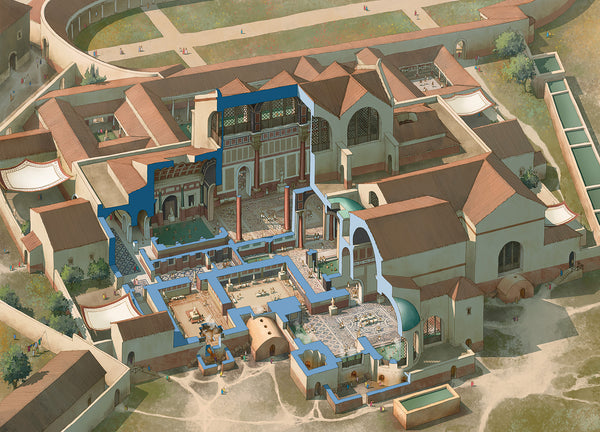Silk Road Centurion - A Review
By Owain Williams
Scott Forbes Crawford, author of Silk Road Centurion and contributor to both Ancient History and Ancient Warfare, after I interviewed him about his new book, was kind enough to provide me with a copy (PDF).
The book follows Manius Titinius, a Roman centurion who, after the disastrous Battle of Carrhae, is enslaved by steppe nomads – the Xiong-nu – who had fought alongside the Parthians. Eventually, he manages to escape, and he is taken in by a Chinese family who he must protect, along with the village against the Xiong-nu’s retaliations.
Based on this very brief summary, I would assume that the book was a straightforward action-adventure novel, full of action and little characterisation, where the Roman saves the day. However, Scott Forbes Crawford has managed to subvert my expectations. There is, of course, plenty of action, but there are also plenty of slower, quieter sections which explore the lives of the characters beyond the immediate Xiong-nu threat.

A good example is Manius’ time learning about his saviours, both as individuals and Chinese culture generally. Manius, as an outsider, is a perfect character to explore ancient China with, for he knows nothing about it, he is a blank slate upon which Crawford can sketch a simple representation of China. Indeed, Manius’ attempts to learn Chinese from Lingyu, a little girl in the village he is taken to after he escapes, are a particularly charming section of the book. Moreover, Crawford resists the temptation to reveal as much as possible about ancient China, avoiding long expositional speeches, instead naturally weaving the exposition into conversations.
I was impressed with how Crawford managed to avoid the ‘foreign saviour’ trope, where an outsider comes to a community and, on account of being different, manages to revitalise the community against a threat (think Avatar or Dances with Wolves). Instead, all of the primary characters are imbued with agency. The defence of the village, for example, is headed by an old Chinese soldier. At times, it feels as though Manius is very much a character within their story, which has briefly cross paths with his own.
There were moments, however, where the actions of the characters strained my sense of verisimilitude. The most egregious example, in my opinion, came early in the book. Several other Romans were captured after the Battle of Carrhae and, with Manius, are marched to the steppe. Several times the Romans, including Manius, seem confused as to why they have been taken. I can understand an initial reaction of denial from the captives. However, as Rome was no stranger to slavery, particularly slavery through conquest, I struggled to accept that the Romans would continue to be unaware of their fate, almost right up to when they are brought to a slave market. Additionally, a relationship Manius has with a trader’s daughter near the end of the book felt somewhat contrived.
That said, Silk Road Centurion was a fun book. One with plenty of well-realised action scenes and heartfelt moments that truly made you care for the characters and the story.
Silk Road Centurion is available from Camphor Press.


3 comments
‘Winter Quarters’ is outstanding though rather different from ‘Silk Road Centurion’, particularly in my focus on China. ‘The Parthian’ is new to me; I shall have to read it.
Or you could read THE PARTHIAN by VIC HURLEY.
Alfred Duggan’s ‘Winter Quarters’ is recommended as a story about Roman survivors of Carrhae.